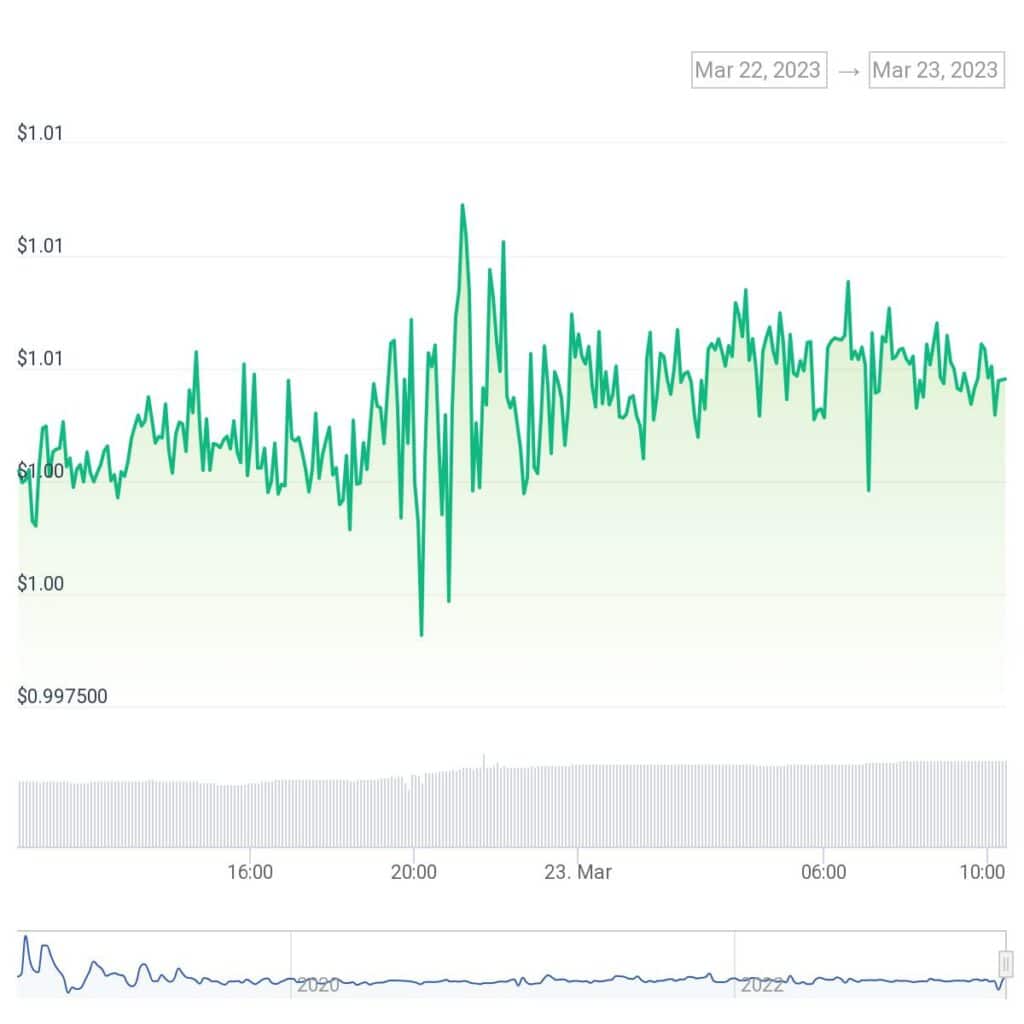Xapo Bank has announced that its members can now directly deposit and withdraw their USDC stablecoins on its regulated banking platform, enabling them to bypass the time and cost inefficiencies of the SWIFT payment system.
USDC deposits and withdrawals now live on Xapo
As the U.S. banking crisis continues to hit hard, with various crypto market participants in the region now in search of banking partners abroad, Xapo Bank, a licensed private bank that offer bitcoin custodial services, has joined forces with Circle, to add support for USDC deposits and withdrawals.
With the partnership, Xapo Bank has become the world’s first regulated bank to integrate USDC stablecoin payment rails as an alternative to the SWIFT, making it possible for its customers to send and receive money around the globe on a 24/7 basis.
A lifeline for U.S. crypto businesses
As the regulatory dark clouds in the U.S. crypto space and harsh laws continue to make life harder for digital assets businesses, with crypto-friendly banks coming under increased scrutiny, Xapo Bank’s latest offering comes at a very crucial moment.
The bank claims to offer its customers a 1:1 conversion rate from USDC to USD, and users’ USD deposits are guaranteed (up to EUR 100,000) under the Gibraltar Deposit Guarantee Scheme (GDGS).
To ensure the safety of customer deposits, Xapo Bank says it does not offer lending or staking services, and all users’ funds are automatically converted to USD held by the bank. Xapo invests in short-term liquid assets and offers its customers a 4.1% interest rate paid daily.
Xapo says it charges a membership fee of $150 and uses the money to offset its overhead costs.
As part of efforts to expand its payment rails options, the bank recently added support for the U.K.’s Faster Payment System (FPS), enabling GBP deposits and withdrawals. Xapo also supports the Bitcoin Lightning Network, thanks to its recent partnership with Lightspark.
USDC standing strong
Due to its exposure to the collapsed Silicon Valley Bank (SVB), Circle’s USDC lost parity with the dollar earlier this month, allowing cypherpunks like Ethereum’s Vitalik Buterin and others to buy the dip before a $3 billion credit from Coinbase salvaged the unfortunate incident.
As reported by crypto.news on March 11, USDC issuer, Circle burned $2.34 billion worth of the stablecoin, in a bid to meet the increased redemption requests brought about by the depeg event.
At a time when the abrupt collapse of projects like Do Kwon’s now-defunct algorithmic stablecoin has brought increased regulatory oversight on the so-called stablecoins, the quick resurrection of USDC from the brink serves as a good example to other market participants, while also proving to regulators that not all stablecoins lack capacity.
In related news, the Twitter account of Dante Disparte, the chief strategy officer (CSO) and director of global policy at Circle, was hijacked by hackers on March 22, to announce some phony promotions by the company.

At the time of writing, USDC is exchanging hands for $1.01, representing a 0.3% increase in the last 24 hours. The stablecoin has a circulating supply of 34,719,676,174, out of a total supply of 34,721,831,403. The USDC stablecoin boasts a 24-hour trading volume of $6,260,587,099.
This article first appeared at crypto.news

